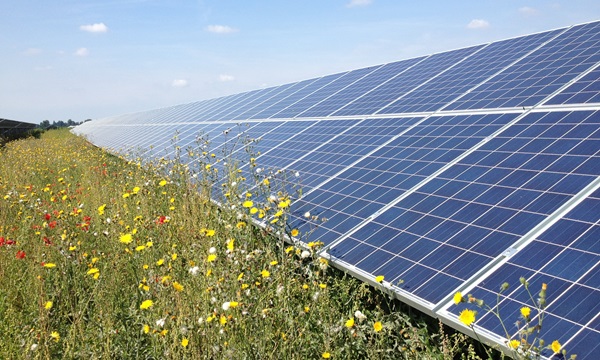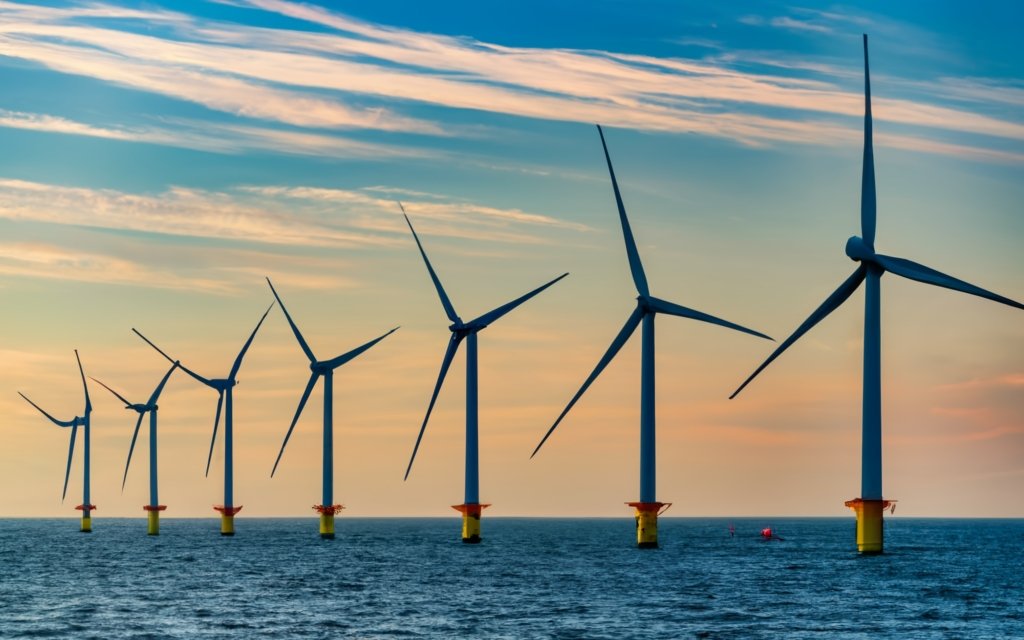How many times did Keir Starmer mention the climate in his speech at the launch of GB energy? The answer is quite revealing. Not once.
GB energy has not just been established as the key to meeting Britain’s legally binding net zero targets. No, instead the message was clear. GB energy is about energy security and dominating the industries of the future. Our approach to net zero has and must continue to, shift from a bias of moral obligation to strategic economic policy. Meanwhile, the UK is de-industrialising faster than any other developed economy. This must be reversed.
This is in stark contrast to China, where a ‘profit over polar bears’ approach has seen them take an early lead in the battle to control the industries of the future. Despite their very questionable environmental credentials, the Chinese control at least 75% of every single key stage of solar photovoltaic panel manufacturing and over 70% of the lithium-ion batteries used in EVs. The EU too are making moves in this space with the EU Green Deal designed to attract at least €1 trillion worth of public and private investment before 2030.
It’s clear, the climate cash cow is just waiting to be milked but how can Wales get its share of the tanker? We don’t boast the fiscal might of the likes of the US or China and, despite our history as industrial heavyweights, have little to show for it now. What Wales must do is find its niche in the race to leverage the green revolution. For inspiration, we can learn a thing or two from Costa Rica, whose value proposition to businesses is that it generates 99% of its energy from renewables, helping the planet and the country prosper. With digitalisation proving to be very energy intensive, businesses are facing large pressures to become more sustainable. The prospect of clean energy gives Costa Rica a unique competitive advantage and forms the basis of its strategy to become a global semiconductor hub with US backing.
If Costa Rica, why not Wales? The Cardiff Capital Region (CCR) is already host to Europe’s major cluster for compound semiconductors, fuelling its extensive local supply chain as supported by Manufacturing Wales, and creating a magnet for expanding the Advanced Engineering sector in Wales. But why not think bigger? AI too poses a lucrative proposition. The complexity involved with generating human-like answers means that AI uses about 10 times as much power as a normal Google search and studies suggest AI could consume as much energy as the Netherlands by 2027. Before AI, data centres had to be close to users to minimise latency. But with AI, this is no longer the case.
If Wales can transition quickly enough, it can attract these industries with cheap clean energy and support the sector of strength clusters that are so key to economic growth. This will create high value jobs, pull in and retain graduates which in turn will attract more businesses and so on. This virtuous cycle, which economists call agglomeration, is responsible for nearly every piece of innovation in the modern economy from the COVID-19 vaccine to the technology in our smartphones.
The energy transition must not be viewed as just a virtuous quest or a fiscal burden but as a golden opportunity to attract the industries of the future. Wales must learn from the commercial incentives of our neighbours but go a step further, embracing quality, depth, endurance and the duality of ‘doing well, doing good’. The facts are simple. These technologies need a lot of green power and Wales has the natural assets to create it. We must use them, seize the first mover advantage and strike whilst the silicon is hot.
Renewed Industrial Strategy
Previous industrial strategy has been characterised by handouts, policy churn and ‘picking winners’ which has left Wales with a very poor record of attracting and retaining top foreign direct investors. This renewed approach will avoid these mistakes by creating what we might call an incentive structure and culture.

Firstly, it works on the premise of attracting and building businesses by creating the environment they desire and require. Being one of the first countries in the developed world powered by cheap renewable energy would give companies located in Wales an environmental and cost advantage over their competitors. Complementary policies to create a skilled workforce and good transportation infrastructure will have their part to play in creating agglomeration economies but the key initial incentive is cheap clean energy. Secondly, this must be a committed long-term approach which will also allow time for the successful delivery of these complementary policies. Thirdly, instead of propping up existing businesses or ‘picking winners’, the incentive structure strategy allows the winners to pick themselves.
An additional layer to the incentive structure is the role the CCR and the Welsh government must play as a catalyst for innovation. For such a widescale and rapid transition to clean energy to occur, significant investment in new or unproven inventions must coincide with the rollout of existing technologies. Public bodies, which consider long-term strategic and economic interests, tend to dominate the early stages of the innovation cycle allowing the private sector to bring them to the mass market. The clean energy market is no different.

There is a crucial final layer to the incentive structure; the role of the Welsh government and CCR as beneficiaries of the innovation process. Previous industrial strategy has had public bodies bear much of the risk of early-stage investment whilst private companies harvest the returns. Whether through royalties for state-funded innovations, income contingent loans or equity stakes, re-evaluating this risk-return nexus would create positive incentives for public bodies to sponsor innovation. The CCR’s Evergreen Funding Framework aims to do just that by recycling returns for continued re-investment, creating a more sustainable relationship that benefits the eco-systems and the wider economy.
But we must also appreciate the potential for renewed industrial policy to drive social progress. By extending the definition of industrial strategy beyond just industrialisation, to place and a solution to embedded worklessness and socioeconomic challenges then it can also serve as a catalyst for social revitalisation. A renewed industrial strategy as outlined delivers a return on energy investment (ROEI) that will drive productivity and prosperity.
Wales as An Energy Superpower
The final part of the strategy is to understand Wales’s and the CCR’s assets. Not only is it blessed with the natural resources to create abundant clean energy but its geographical proximity to big energy markets underpins huge potential. The irony is that Wales’s resources sparked the first industrial revolution and here it is again with the potential to lead another.

Being home to some of the wettest and windiest parts of the UK, having plentiful space for onshore and offshore wind, solar panels, proven and new forms of nuclear reactors as well as having the second largest tidal range in the world, Wales is rich in natural assets. This gives us the potential to generate renewable energy on an industrial scale. With an energy-hungry UK, Ireland and Western Europe on its doorstep, Wales also has a ready-made export market. It’s not just the industries of the future and our neighbours that are demanding renewable energy; our own domestic needs for housing, transport and utilities are critical to our country’s well-being.
One local initiative that could champion this renewed approach to industrial strategy is Aberthaw Power Station. Purchased by CCR for remediation, redevelopment and repositioning of power generation, the plan to produce green energy whilst powering the region’s sustainable economic growth and drive towards net zero is pioneering. CCR’s work with an international conglomerate, developing a hydrolyser test bed to produce green hydrogen as an alternative fuel for heavy goods vehicles is world-leading. Finally, Wales must also explore the possibility of utilising old underground coal mines and the geothermally heated water within them as a source of clean power. Given ¼ of homes in the UK sit above old coalfields, an exciting export market for this technology awaits, turning these hazardous liabilities into lucrative assets.
The final piece of the puzzle is a plan to reform the wholesale energy markets. The IEA reported that in 2023, 96% of the newly installed PV and onshore wind capacity had lower generation costs than fossil fuels. Indeed, if UK consumers and businesses could pay the going rate for clean energy then Scotland would enjoy the lowest energy prices in Europe. But therein lies the problem. The wholesale energy market operates on a ‘marginal costs pricing’ basis whereby all units of electricity are sold at the price of the most expensive unit at any given moment. Whilst this does generate significant profits for renewable energy companies and encourages new entrants to the market, it ignores the massive industrial benefits that would accrue with cheap power. As part of this strategy, Wales must call for greater devolution of energy or Westminster-driven reform of this outdated system.

In summary, we must accept that the energy transition goes beyond a moral obligation to protect the planet and is vital for economic revitalisation. It is only by understanding these incentives that will we drive forward a rapid transition to net zero, where economic activity leads to environmental recovery, not degradation. This vision for Wales and the CCR as an energy exporter and hub for the industries of the future can only be unlocked with bold action and a commitment to delivery. Wales and CCR need to be bold.
